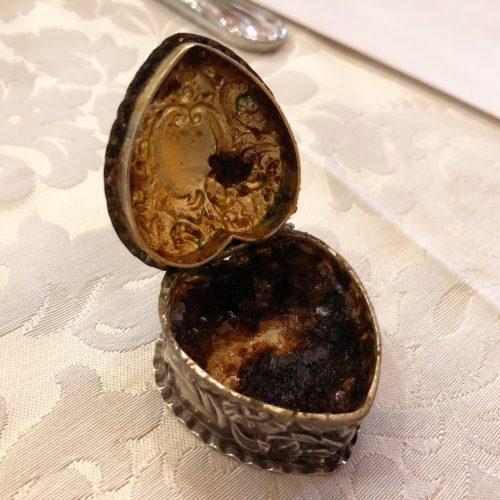
I’m obsessed by smells. It’s a good job because a large part of my job involves smelling things. Most commonly, fermented grape juice.
But for a long time I’ve been really interested in ambergris, ever since I heard about it as an exotic component of many perfumes. I’d read that this was an excretion from whale intestines, and smelt bad, but was a really important and expensive ingredient in some perfumes. It turns out that I’d not got the whole story, and there was some misinformation going around. And I had unwittingly spread some of this.
Recently, an aroma researcher in Canada, Dr Melanie McBride, contacted me, because she’d seen a mention of ambergris in the introduction to my latest book (Flawless). I’d quoted Melanie before, in I Taste Red, so it was good to hear from her.
I have some info about ambergris you might find useful given your description in the intro. Not sure who you got your info from but there’s a lot of perfumers who really aren’t that knowledgeable about it because they haven’t obtained enough to really know it well. I know some folks who sit on ambergris evaluation boards and have written extensively about it and from whom I’ve obtained samples and sniffed many rare and antique examples and they are anything but disgusting…
…Key thing is, ambergris is often the jewel of a perfume – not merely a supporting role. So its important to know that too. Ambergris is an exquisite scent – ‘amber’ as in vanilla and cistus labdanum ‘gris’ as in gray (the highest quality). It cures and ages in the sea. If FRESH yes it would be digusting but it would also be unusable! It must be collected, it cannot be harvested.
Melanie sent me a link to a really good article on ambergris, which is here. In this I learned a lot. First, ambergris isn’t usually vomited by whales (like a whale hairball), but usually passes out through the rectum. In some cases it can block the rectum and the whale dies. It’s made only in sperm whales, and is a mechanism for protecting the intestine from sharp items in their diet, such as squid beaks: these offending objects are coated in a substance that then congeals and creates a mass.
But there’s be no point in hunting sperm whales for ambergris. That’s because an essential stage in its transformation from intestinal debris to valuable perfume ingredient is the ageing process as it bobs around in the sea for a long time – sometimes years. It is therefore only discovered when it washes ashore, and if you find a decent-sized lump, you could be very well off indeed.
Then, yesterday, by chance I got to see some, and smell it, and put it on my skin. Far from smelling bad, this ambergris is quite remarkable, and lovely. I was having lunch with Olympia Rizzardi of Guerreri Rizzardi in Bardolino, and when I said that I was interested in perfume (because of my interest in smell), she pulled out a small silver container with some ambergris in it.
I put a tiny trace on my hand, and then smelled it. It was amazing: a very rich smell, much more bass than treble, with spice, vanilla, old wood, dried herbs and maybe a whiff of smoke. It was quite sweet smelling. Three hours later this tiny trace was still smelling lovely, and it seemed that I wasn’t desensitising it, and it wasn’t fading. Now I understand why it is so highly valued by perfumers: it isn’t just a fixative, or a foil. This sort of thing is fascinating to people like me who obsess about smell.
1 Comment on Ambergris, a remarkable natural smell ingredient from whales

Thank you for the nod Jamie! It’s so cool that you had this opportunity – a rare one for sure, very few people get to have. So your first hand experience is so valuable – just as wine reviews provide similar context – about an aromatic substance that is not all that accessible. I also think it’s far more interesting to read a story about an experience of learning with and through a material, how you got to experience it, who helped and etc, than a neatly assembled passage of secondary sources that may or may not be correct (and the reader and the author may never know in the absence of that direct experience…). Also a neat way of updating any material that is published with newer information – I’d like to follow your lead. I think academics should be doing the same as we are all of us mostly purveyors of second hand news 😉